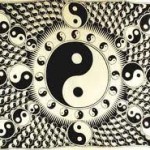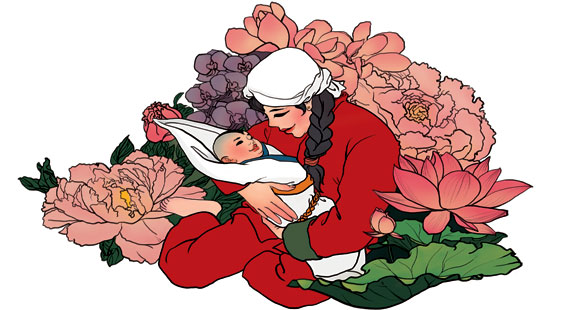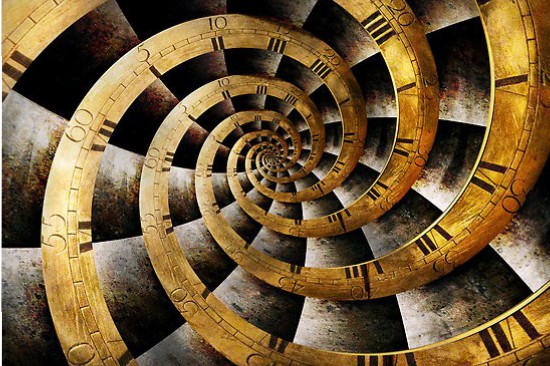Promotes free-flow of QI and blood and warms meridians; treating painful joints caused by cold-damp, for numbness, paralysis, and sensation of cold. An excellent treatment, particularly in seasonal cold-damp and conditions of debility.
chinese medicine
Presence of Balancing Imbalance
Heaven follows the momentum of the Tao; Earth follows the laws of Heaven; Human beings follow the laws of Earth.
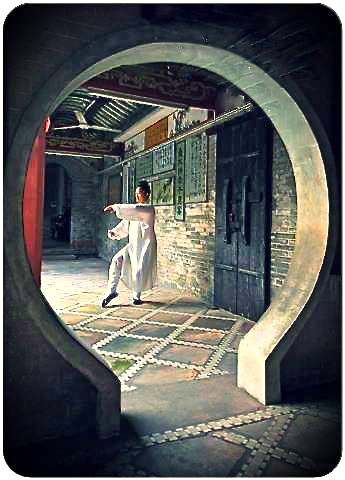
In this ordering of Universal energy, we are both followers of and co-creators in the flow. With our life-force we create momentum and thus destiny.
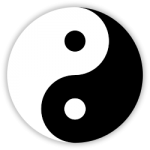 Through our Jing, Qi, and Shen we bring the presence of balance or imbalance to self and surroundings.
Through our Jing, Qi, and Shen we bring the presence of balance or imbalance to self and surroundings.
Acupuncture & Moxibustion
THE INTEGRAL WHOLE IN THE RELATIONSHIP OF MAN WITH HEAVEN & EARTH, AND ACUPUNCTURE AS A TREATMENT FOR ALL DISEASE.
The human individual is an integrated aspect of the universe, with life’s happenings reflecting the interplay of Yin and Yang. These dynamics, displaying the shifting, greater movement of energy, are the root of prevention and treatment of disease by Chinese medicine.
Please Enjoy & Share

Surgical Casebook
Pioneering doctor Hanaoka Seishū 華岡 青洲, of the Edo period, combined his knowledge of Chinese herbal medicine with Western surgical techniques he had learned, and became the first to perform surgeries with anesthetic. He was the first to formulate and use general anesthesia to remove tumors from cancer patients. His proceedure came 50 years before anyone else would perform surgery with general anesthetic. In the medical manuscript (example seen above), hand-painted pictures visually document the likeness to the men and women patients who went to Hanaoka for treatment, as well as the medical conditions being treated. https://youtu.be/RNGfown7iys
Cholesterol from a TCM Perspective
Did you know that Yang-energy fight or flight hormones associated with stress rhythms can cause an elevation in cholesterol?
Traditional Chinese Yin-Yang theory is adaptable to classify all universal phenomena, including the modern dietary-lifestyle staples that play into most health conditions. Coffee, sugar, and alcohol, among the more ubiquitous, have an overwhelming and weakening effect on the interconnected systems of the body. In the polarity of Yin-Yang, these substances are seen to liberate a lot of Yang Qi, which is to say the active, warming, dynamic aspects of the functioning, material form. Stress hormones have a similar effect in liberating Yang Qi.
In Yin-Yang theory of TCM, to balance excessive Yang, the body functionally secretes Yin to compensate to bring balance to the Yang excess, which includes secretion of the inherently densely Yin substance of cholesterol. Due to factors of over-consumption of strongly Yang-natured substances, and possible familial predisposition, often this compensation of Yin in the form of cholesterol occurs to pathological levels. Much more than avoiding eggs (which can be refuted as irrelevant) to prevent or reduce cholesterol are the dietary factors of coffee, sugar, and alcohol that are far more debilitating. In Chinese medical theory balancing Yin and Yang is key to physical health and mental well being. Eliminating stress and the dietary factors that liberate an abundance of Yang Qi in the body is the first step to reducing elevated Yin-levels of cholesterol, and it is the final step in maintaining healthy blood cholesterol.

Patient Compliance is Key to Success in TCM Treatment
‘One who takes medicine but neglects diet and a moderate way of life wastes the skill of the physician.’ 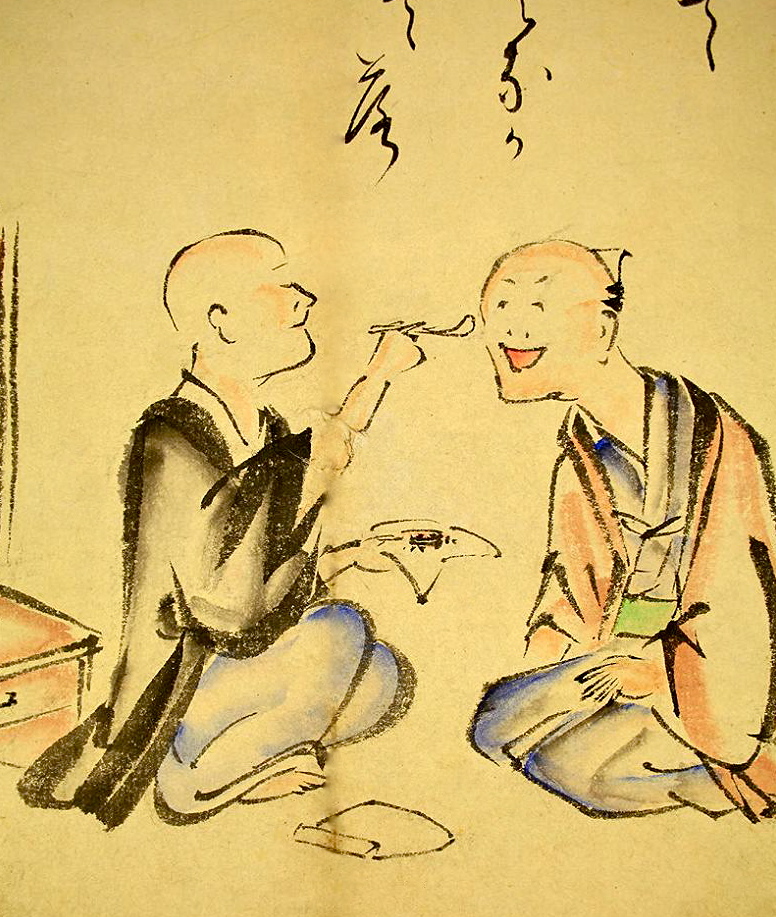 Your acupuncturist can treat you with acupuncture, prescribe herbal medicine and tell you how and when to take it, and from this you are very likely to feel better. S/he will undoubtedly help you to recognize what mental-emotional states and life-habits are having on you according to the wisdom inherent in oriental medicine. The principles of nurturing life known as Yǎng Shēng are discussions in the Chinese medical classics. The ways by which to nourish life through diet, breath, movement, and practices derived from cosmology and inner cultivation, display resonance with the elements of the natural world. These ways have long been observed and practiced by Taoists, Chinese physicians, and their patients alike, handed down in specific detail for millennia to reach your acupuncturist to share with you.
Your acupuncturist can treat you with acupuncture, prescribe herbal medicine and tell you how and when to take it, and from this you are very likely to feel better. S/he will undoubtedly help you to recognize what mental-emotional states and life-habits are having on you according to the wisdom inherent in oriental medicine. The principles of nurturing life known as Yǎng Shēng are discussions in the Chinese medical classics. The ways by which to nourish life through diet, breath, movement, and practices derived from cosmology and inner cultivation, display resonance with the elements of the natural world. These ways have long been observed and practiced by Taoists, Chinese physicians, and their patients alike, handed down in specific detail for millennia to reach your acupuncturist to share with you.
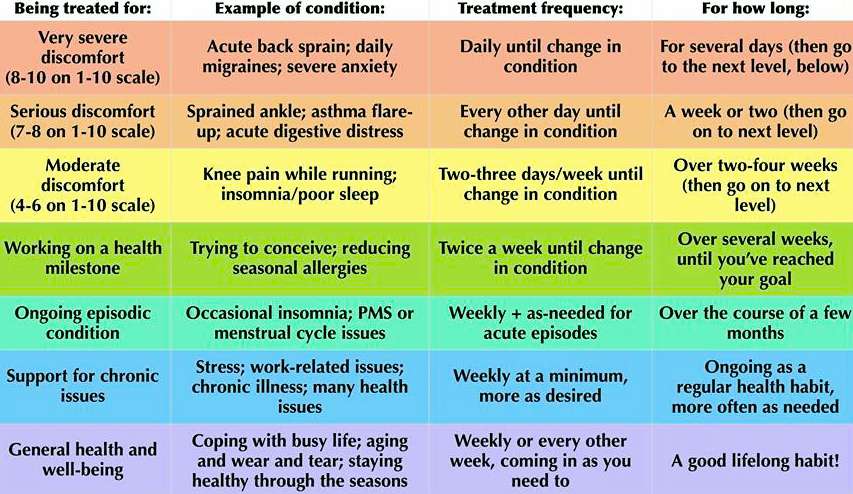
Here are basic parameters to help you consider the frequency of your treatments.
Please be ever-mindful when you leave the healing atmosphere of your treatment to put into practice the various recommended aspects of Yang Sheng that will facilitate your treatment related to diet, medicinal herbs, clothing, rest, exercise, and the like. By doing so, your life can begin to flow more smoothly in the manner that your treatments are intended. I remind my patients that herbal formulas in paricular can’t work if they aren’t taken, and one step further, they can’t be expected to work nearly as well if one waits days or a week to procure them or skips dosages. Without awareness and compliance, steps toward resolving a condition may only improve temporarily or not at all. Compliance is key as a patient and contributes to your healthy transformation. 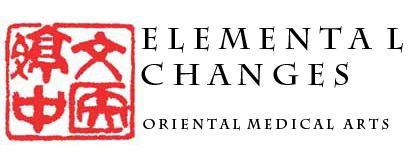
Diagnostic Tongue Maps
Look at your tongue daily before brushing or eating.
See what it may be revealing to You.
Here is a basic overview
Normal (top left) – reflecting a relative balance of internal QI, blood, humors, organs, and essence.
Qi Deficient – basic symptoms of poor appetite, sluggish, weak digestive function, fatigue, worrying and overthinking, dizziness.
Heat – basic symptoms of irritability, thirst, constipation, skin issues.
Dampness – basic symptoms of fullness, bloating, edema, lethargy, discharges.
Blood Stasis – basic symptoms of varicosities, headaches, chest pain, skin spots, painful menstruation.
Qi Stagnation – basic symptoms of pms, some types of abdominal pain, moodiness.
Damp-Heat – basic symptoms of skin conditions, urinary infections, clammy skin, angry and irritable tendency.
Yang Deficiency – basic symptoms of chilled easily, seeking warmth, pallor, lower back pain, low emotional state, impotence, infertility.
Yin Deficiency – basic symptoms of night sweating, tinnitus, menopausal symptoms, insomnia.
Blood Deficiency – basic symptoms of dizziness, poor concentration, pale nail beds, poor memory, thin blood and conditions resulting therefrom.
Chinese tongue diagnostic maps offer a simple overview of the body. Tongue coating and its specific color and texture, cracks, teeth marks, pauplues, absence of tongue coating, color of tongue body, quivering tongue body, swollen or thin tongue body all corroborate the greater diagnostics of the person according to TCM.

Post-Partum Care
The following article, Sit the Month, by Weijing Zhu regarding post-partum time is too informative not to share.
When Her Royal Highness, The Duchess of Cambridge, or Kate Middleton as the more common oiks know her, gave birth to the royal babies, she stepped out to greet the world’s media the next day. Many Chinese looked on aghast: How can they treat her so cruelly, do they not let her “sit the month?”
Sitting the month 坐月子 (zuò yuèzi), is a traditional post-partum care custom observed in China and several other East Asian countries. It is a highly prestigious and strictly observed month for a newly expanded family. As millions of Chinese stared at the image of the Duchess, standing with her baby boy they, no doubt, wondered why she wasn’t tucked up in bed getting some much needed rest.
Just as many Chinese were bemused by Middleton’s behavior, many in the West would find post-childbirth confinement in China absurd. The Chinese take this confinement quite literally and add a few dozen extra steps for good measure.
Some of the absolute no-nos for new mothers (and the emphasis is very much on no here) include: no direct contact with the wind, no going out, no fruits, no vegetables, no salt, no wearing sandals, no exposing of the heels, no leaving empty space between the waist and back of a chair (cushion required), no hair washing, no baths, no brushing teeth, no brushing hair, no TV watching, no crying, no boiled water, and more. The list is exhausting. Everything from the food that goes into the mouth, to the air flow in the room—right through to the precise posture and exact amount of standing, sitting and walking—is closely monitored with military precision by various members of the family.
An old Chinese saying addresses the significance of postnatal care: “Eat well, sleep well, nothing is better than sitting the month well.” (吃的好,睡的好,不如月子坐的好。Chī de hǎo, shuì de hǎo, bùrú yuèzi zuò de hǎo.) The health aspects of zuoyuezi find support in Traditional Chinese Medicine (TCM). According to TCM, there are three crucial periods that have life-long effects on a woman’s health: arrival of first period first, post-childbirth and menopause. It’s believed taking the 月子 lightheartedly may result in 月子病 (yuèzibìng), a loose TCM term referring to all illnesses contracted during the month after childbirth that never completely heal. While Western medicine explains the need for postnatal care in scientific terms, TCM attributes it to imbalanced yin and yang. From the perspective of the prestigious Yao (瑶) Medicine, yuezibing results from the invasion of the Six Evils (六邪 liùxié): wind (风 fēng), cold (寒 hán), dampness (湿 shī ), dryness (燥 zào), fire (火 huǒ), and heat (暑 shǔ). Hence, a new mother must receive 24-hour care lest any natural element leaves her in ill-health.
Although giving birth is a natural ability for a woman, the zuoyuezi period of intensive care used to be enjoyed by the husband of the mother. In his imaginatively titled Travels of Marco Polo Marco Polo reports on a Dai (傣) ethnic custom: “As soon as a woman has been delivered of a child… her husband immediately takes the place she has left, has the child laid beside him, and nurses it for forty days.” The husband would then be attended to by the wife, who also attended to household chores and breastfeeding. The Chinese call these men 产翁 (chǎn wēng, birth giving men, as opposed to 产妇 chǎn fù, birth giving women), as not only did they go through zuoyuezi on behalf of the mother, sometimes they would even lie next to their wife while she delivered the baby, mimicking the process of childbirth.
More and more, Chinese are starting to question the old taboos of traditional zuoyuezi. With certain myths, they are right too. Some of the behaviors sound positively medieval; mothers cannot drink water or milk for two weeks after giving birth, substituting it for rice wine. Not bathing or washing their hair for a month is forbidden, as is salt—all while consuming as much sugar and protein as possible. And then there’s my favorite saying related to zuoyuezi: “When sitting the month, one must eat 40 chickens.” That’s a lot of chicken.
Contrary to common belief, the concept of post-natal care, zuoyuezi, derives not from traditional Chinese medicine but from ceremonial rites. The earliest documented practice of zuoyuezi is found in the Book of Rites (《礼记》 Lǐjì). In the twelfth chapter, the custom is described as a postnatal ceremonial family ritual that the new mother goes through, symbolizing the transformation of her role from wife to mother, from outsider to family member.
Consequently, some younger mothers are now denouncing the holy month of zuoyuezi as an outdated feudal practice that should never have made it to the modern era. Their mothers and mother-in-laws, however, still insist on enforcing old traditions. When new mothers pull out the “no one in Europe or America eats 30 eggs a day for postnatal recovery” argument, older relatives often argue it is because of racial differences. Some go so far to claim that not being scrupulous about sitting the month is precisely why Chinese age better than foreigners, or even that foreigners simply don’t know any better.
Though some of the more antiquated practices show little signs of abating, Western obstetrics and qualified physicians are becoming more common. Any many of the taboos are being logically explained away, including the ban on baths. The restriction on taking baths is due to the intensely bad sanitary conditions of the past, which could easily cause dangerous post-natal infections for new mothers; essentially, taking a bath was just not worth the risk. Although medical science has proved many of these archaic practices unnecessary and even unhealthy, its influence decreases once patients leaves the hospital and return to their mothers or in-laws who begin to peddle the old wives tales.
An extremely protein-heavy diet remains one of the most significant parts of the zuoyuezi care, and postnatal caregivers are hotly sought after, especially ones that are qualified, have experience, and possess both the knowledge and the cooking skills to produce a month-long yuezi food menu. A spot at a quality postnatal care facility is more difficult to obtain than a reservation in heaven itself. Guo Jingjing, the retired Olympic diving champion, is offering 80,000 HKD for a top-notch postnatal caregiver. Chinese actress Jia Jingwen’s care giving center cost upwards of 4,500 RMB per day, with the minimum stay being no less than 15 days.
The invasion of Western medicine firmly grounded in science may have shifted the views of some Chinese towards hospitalization and treatment, but it still has a long way to go before it fully soothes Chinese nerves or overtakes TCM and arcane folk beliefs. While it is unlikely that Chinese are going to be enthusiastic about the abolition of zuoyuezi in the near future , no one wishes to maintain a month-long diet that involves one week of only of eating pork livers; followed by one week of only kidneys, all rounded by two weeks of nothing but Sesame Oil Chicken (麻油鸡 máyóujī), which Chinese are very fond of. But defying the old saying that “not sitting the month well renders a life-time of illness” is a risk nobody wants to take.
Bipolar Disorder
Spiraling from Yang to Yin to Yang
In Chinese medicine, bipolar is a range of Mind-Body-Spirit disorder, Dian is a Yin manifestation, tending from deficiency, and manifesting as depression and withdrawal; While Kuang, or mania, belongs to Yang patterning, and manifests as full agitation.
Prolonged withdrawal [Dian] leads to phlegm depression transforming into fire, which results in mania; While prolonged mania [Kuang] leads to insufficiency of vital Qi, resulting in withdrawal. Dian and Kuang, in their extremes, are always inter-related; transformative aspects of Yin and Yang.
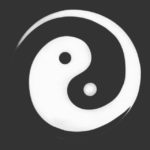
Wind 風
✍️Wendy Brown, Lic. Ac.
According to the Lingshu, a classical text in Chinese medicine known as the Celestial Pivot, the adverse influence of wind was considered so great that the sages ‘avoided the winds like avoiding arrows and stones.’ Like the sages mentioned in the Lingshu, we are all cautioned to avoid even subtle exposure to wind. The wind is considered a ‘pernicious influence’ in Chinese medicine. In ancient times, distinctions in wind were made relative to the bagua directions of the I Ching; each of which yields a certain pathological influence.
Adaptation from prose of Song Yü, 4th Century BCE
A gust of wind blows in. How pleasant a thing is this wind which is shared by all people. Wind is a Spirit of Heaven and Earth. It does not choose between noble and base, nor between high and low. Wind-Spirit comes to different things but wind is not all the same.
It follows the rolling flanks of mountains and dances beneath the pine trees and cypresses. In gusty bouts it whirls. It rushes in fiery anger. It rumbles low with a noise like thunder, tearing down rocks and trees, smiting forests and grasses. Once at last abating, it spreads abroad, seeking empty places and crossing the thresholds of rooms. Growing gentler and clearer, it changes and is dispersed and dies. Freeing itself, wind falls and rises. It bends the flowers and leaves with its breath. It wanders among the osmanthus and pepper-trees. It lingers over the fretted face of the pond to steal the soul of the hibiscus. It touches the willow leaves and scatters the fragrant herbs. Then it pauses in the courtyard and turning to the North goes up to the Jade Hall, shaking the hanging curtains and lightly passing into interior rooms. Wind is fresh and sweet to breathe, and its gentle murmuring cures the diseases of men, blows away the stupor of wine, sharpens sight and hearing, and refreshes the body.
There is also wind that is ill-wind; wind which rises from narrow lanes and streets, carrying clouds of dust. Rushing to empty spaces it attacks the gateway, scatters the dust-heap, sends the cinders flying, pokes among foul and rotting things, till at last it enters the tiled windows and reaches the rooms of a cottage. Now this wind is heavy and turgid, oppressing a wo/man’s heart. It brings fever to the body, ulcers to lips and dimness to eyes. It shakes one with coughing and weakens a person before their time.



